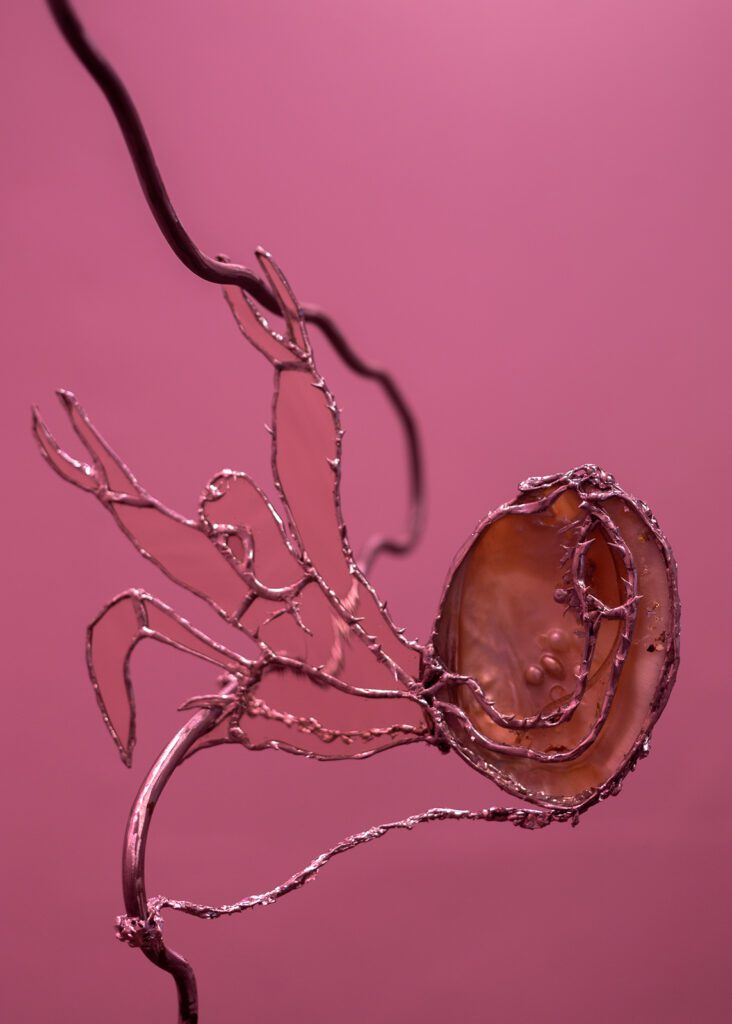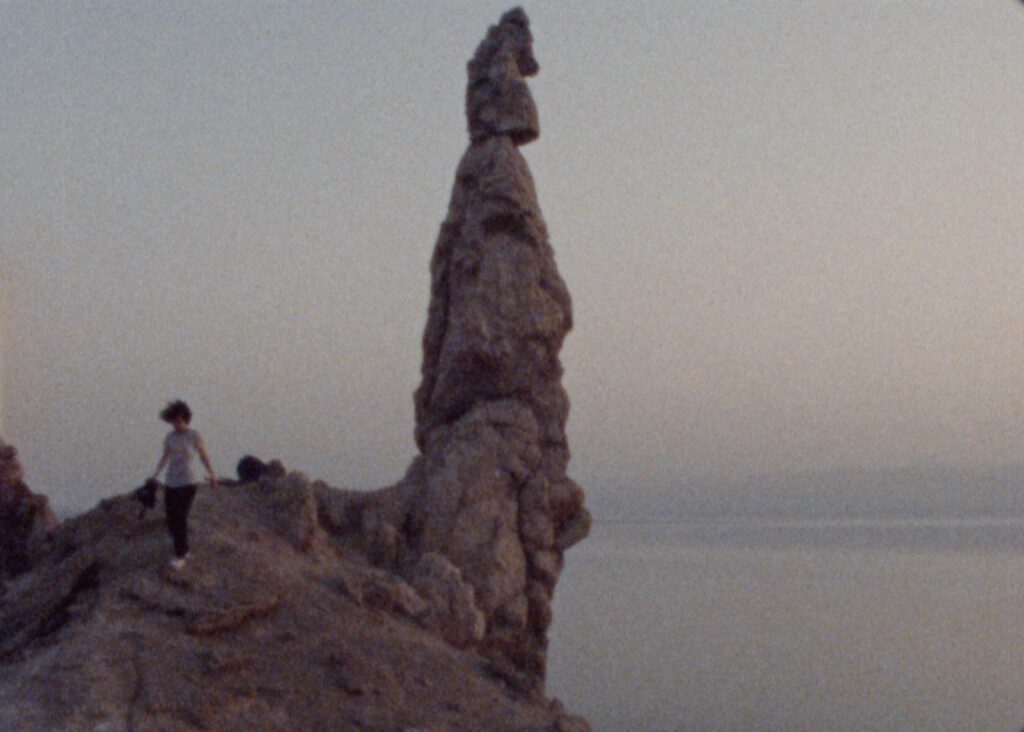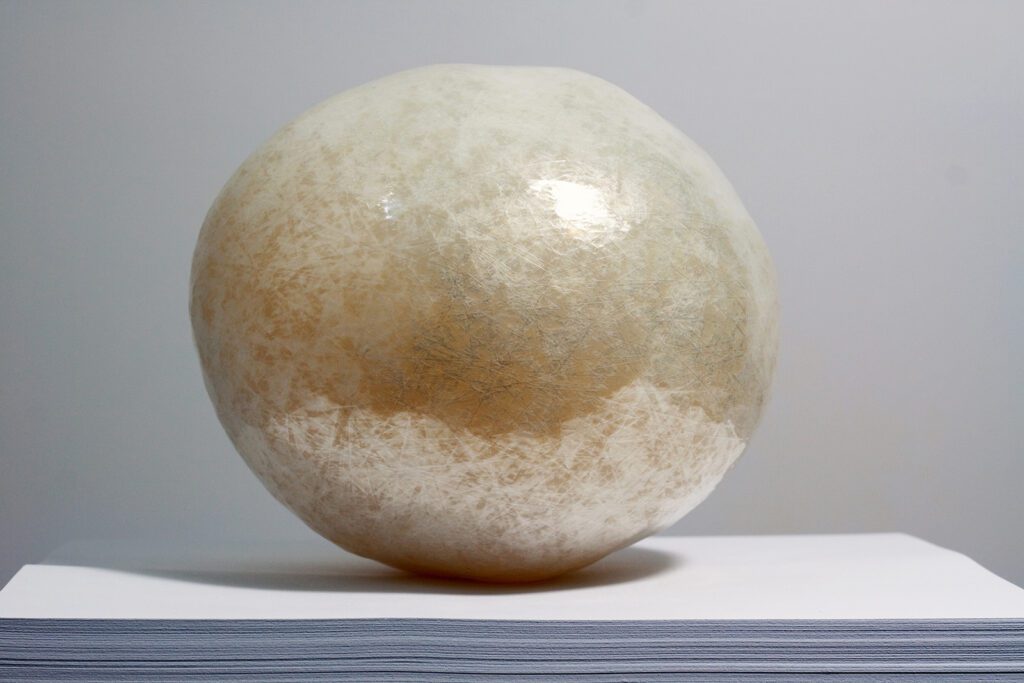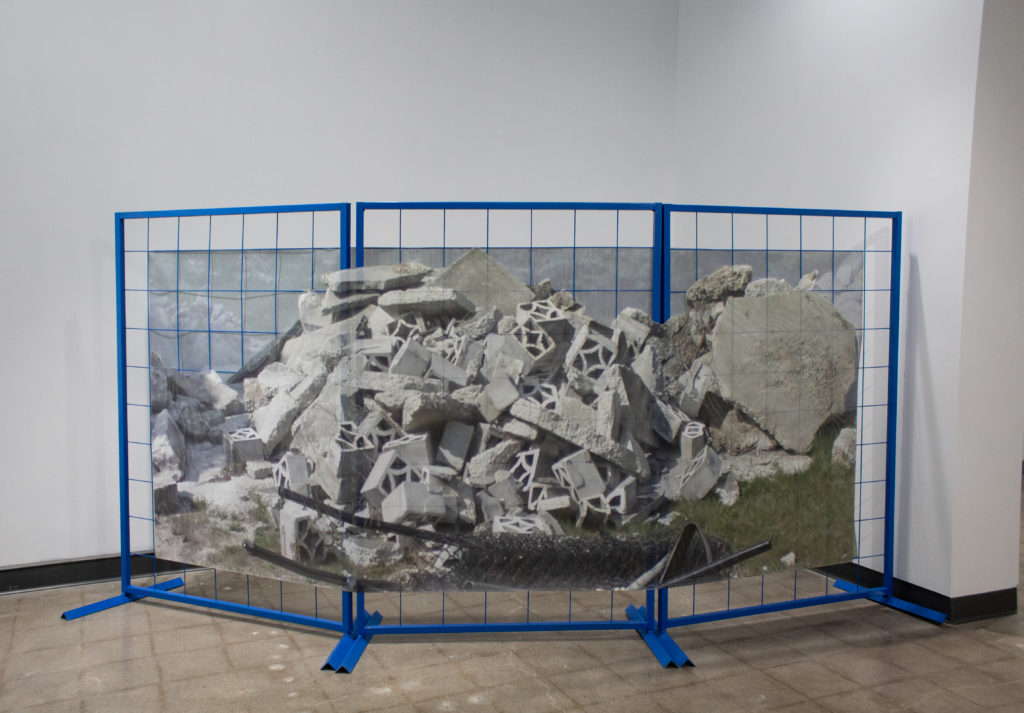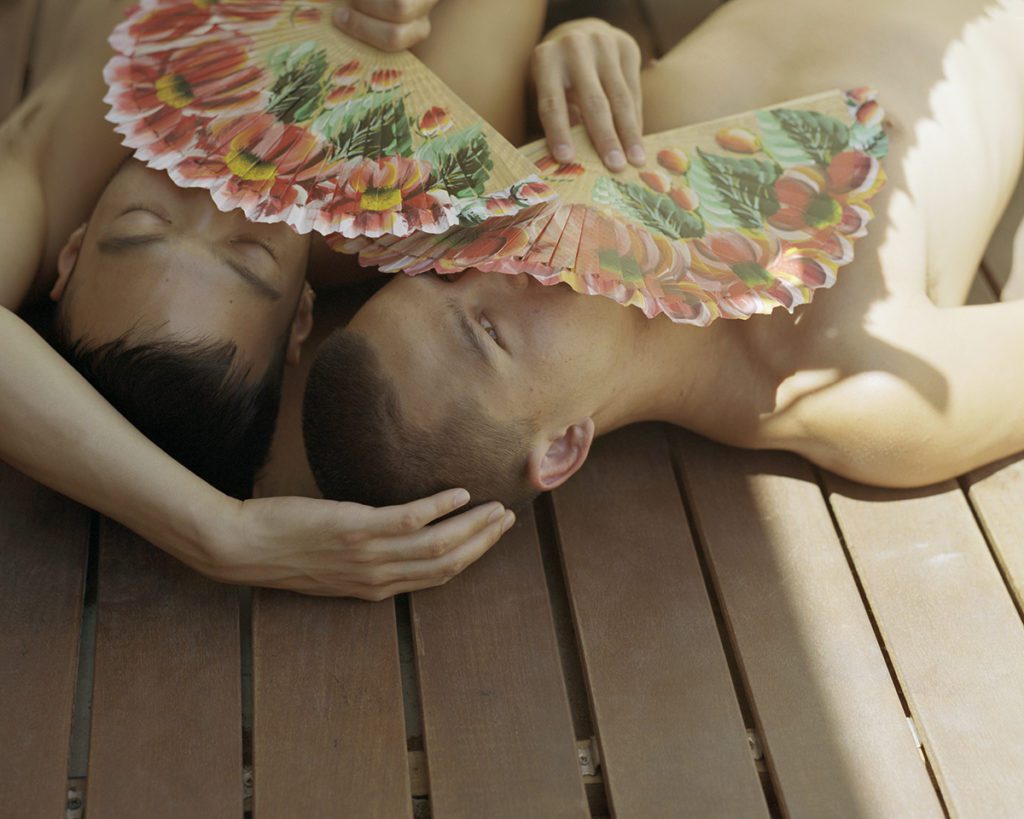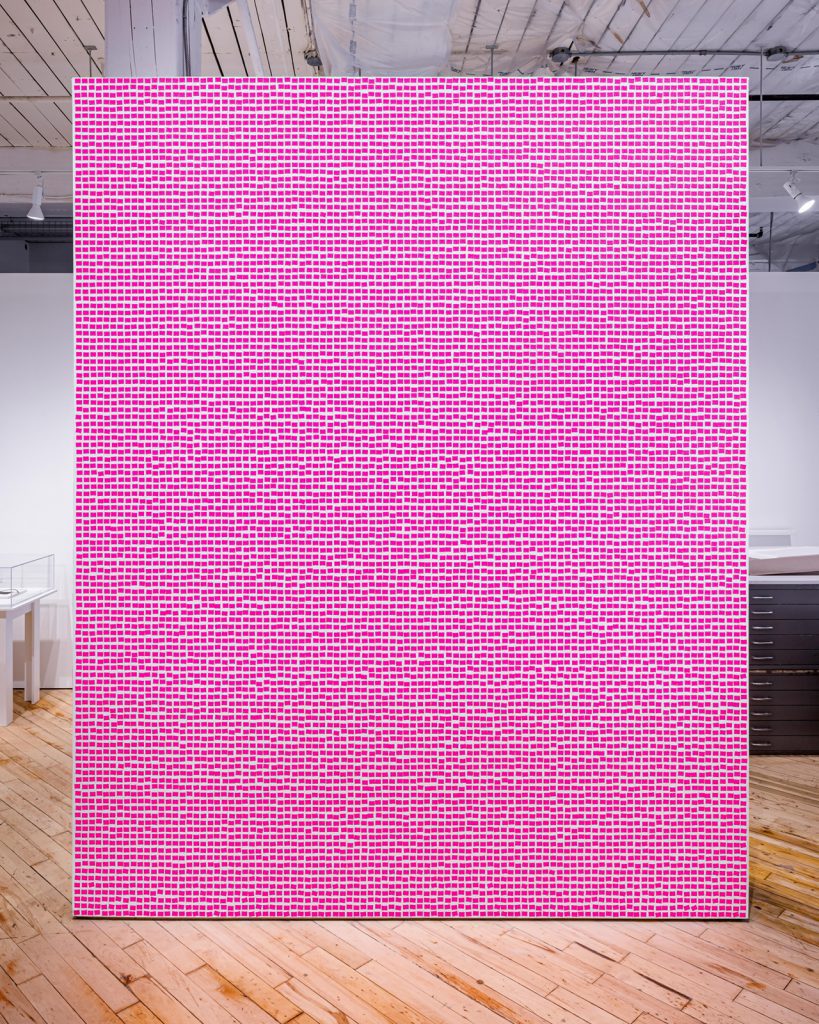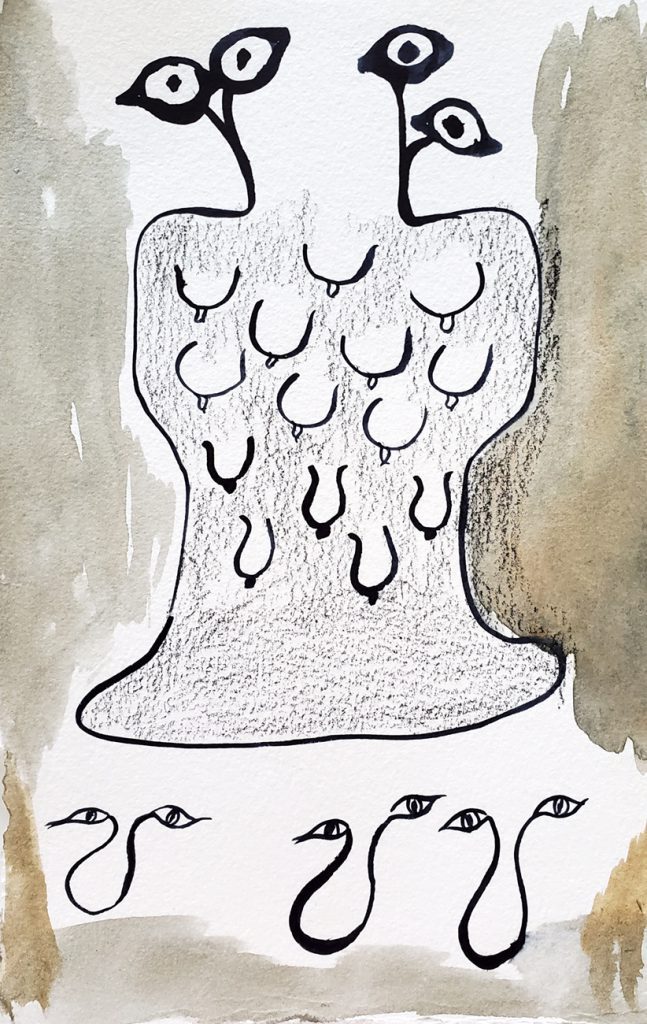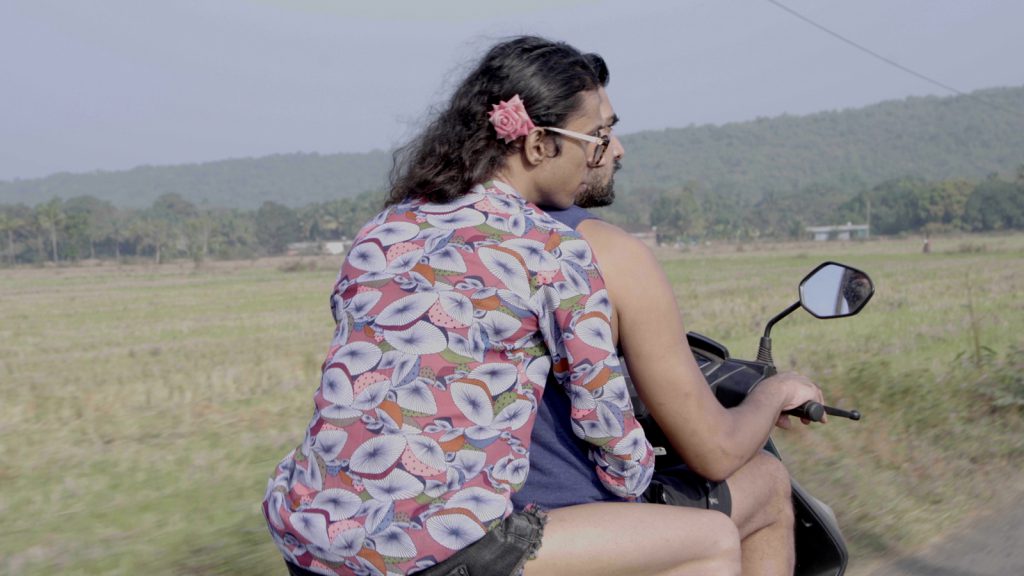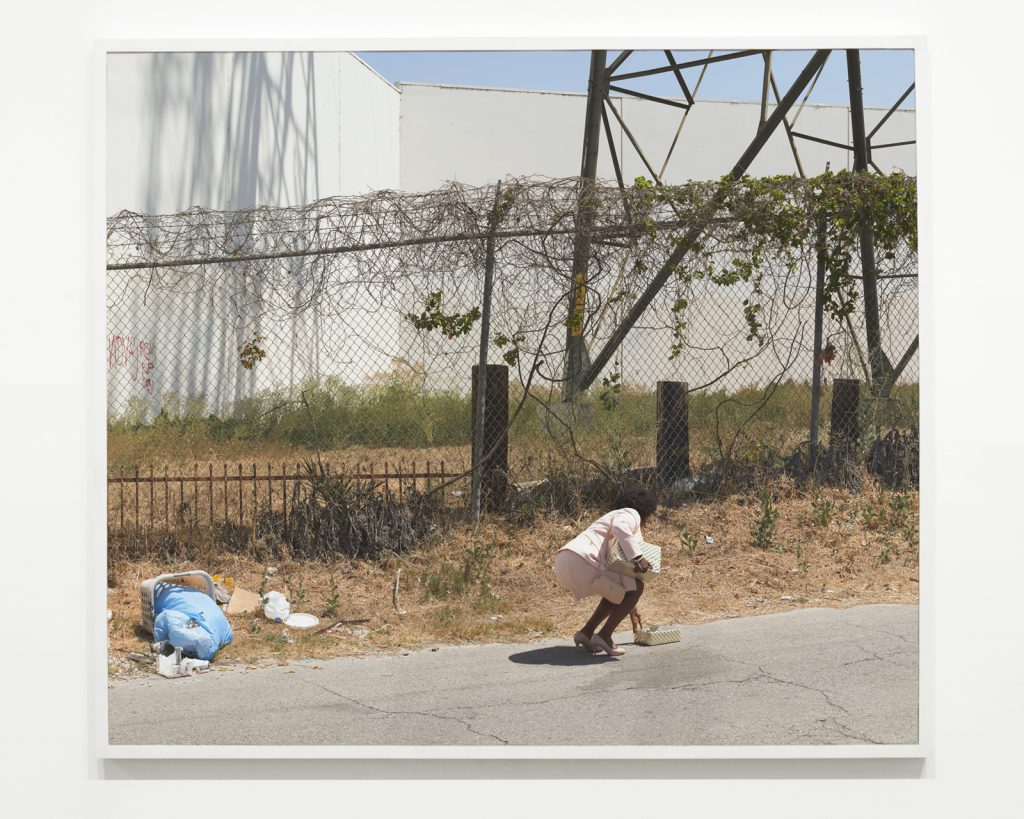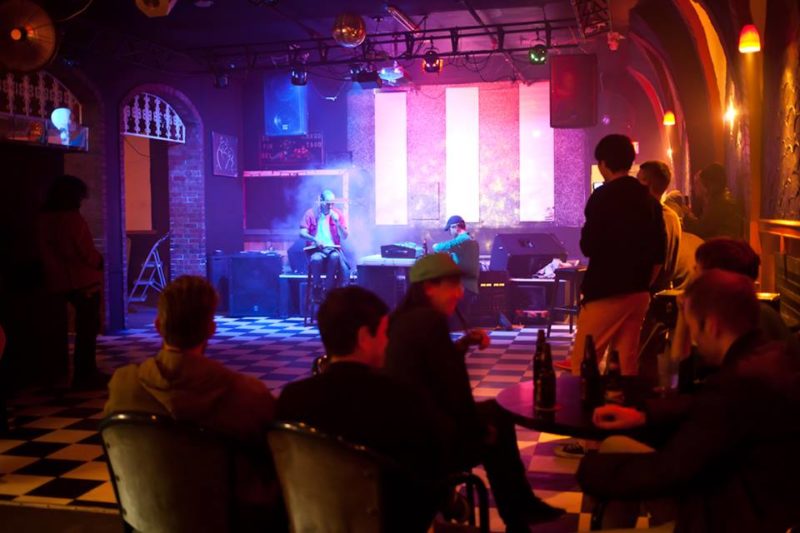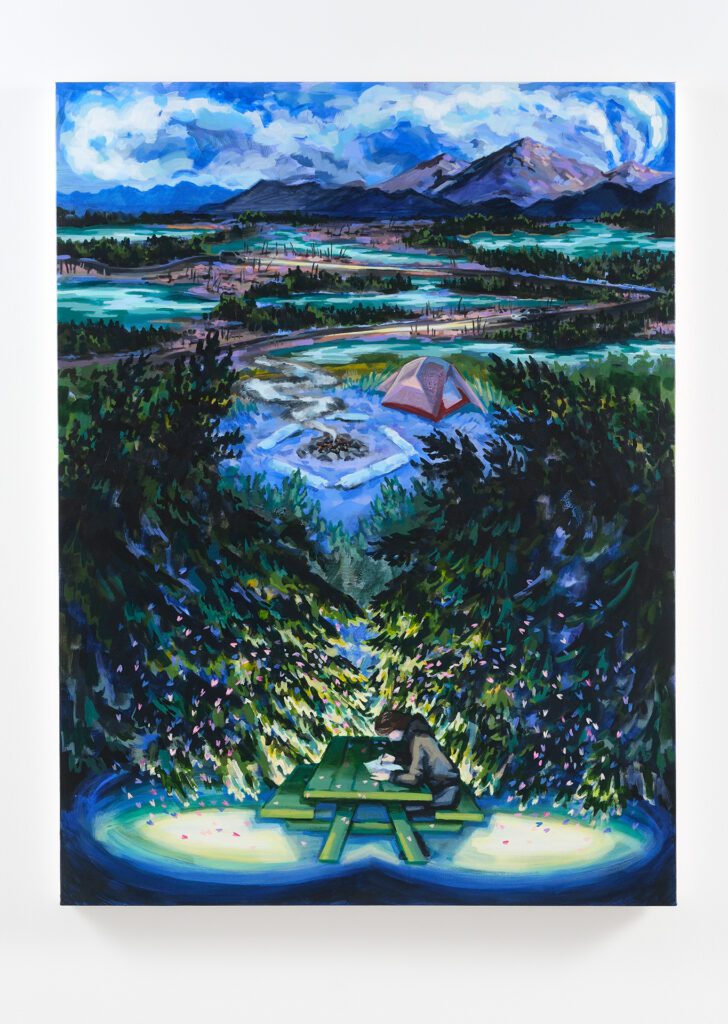
Not Painting “en plein air”: In Conversation with Liz Toohey-Wiese
2 June 2025By Dan Starling
I have been interested in the work of Liz Toohey-Wiese for several years, and first met her when I included her work in the group exhibition that I curated at CSA space in 2022, titled Jelena and the Internet Celebrity Cat. In addition to her commitment to art that addresses climate change, alongside artistic collaborator Amory Abbott, she edited the self-published, three volume series of books called Fire Season, which gather a diverse community to use visual art, poetry, writing, and essays to look at wildfires as a container for more complex and experiential topics like grief, climate change, loss, new growth, and the changing ideas of landscape.1 After taking in their project, I wanted to know more about how Liz thinks about her painting practice in relation to environmental activism, and changing the public’s perception on climate change. Her exhibition of paintings at Duplex in December of last year was the perfect opportunity.
Having also recently embarked on my own series of landscapes in the studio, I wanted to know Liz’s perspective on how, as settler artists, we can responsibly depict the local landscape to challenge the settler-ideology of the hierarchy between humans and nature which contributes to climate inaction. The interview took place on January 2, 2025 at Duplex Artist Society in Vancouver, BC, on the unceded ancestral territories of the xʷməθkʷəy̓əm, Sḵwx̱wú7mesh, and səlilwətaɬ Nations
Continue Reading

